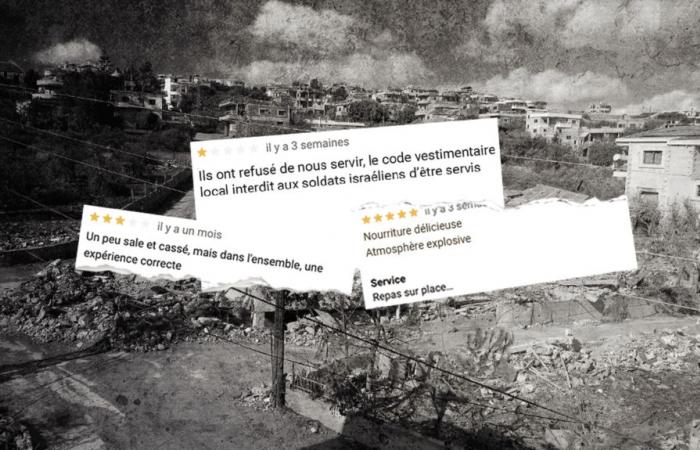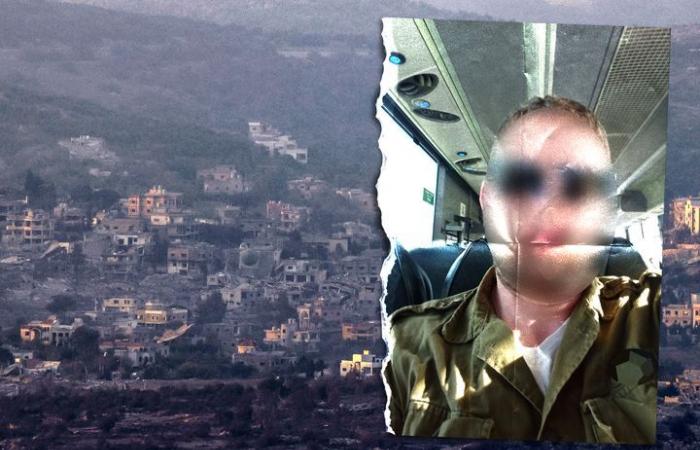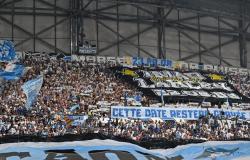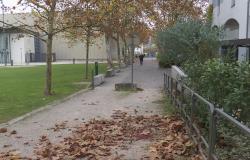Mocking comments were posted on Google Maps, pinned to locations bombed and invaded by the Israeli army in Lebanon. Franceinfo has traced these opinions and their authors.
“No mosque, only rubble (…) I came for nothing, I don't recommend it.” This comment tinged with macabre irony was posted at the end of October on the Google Maps platform by a certain Gabi W. about the Ahel al-Quran mosque in Yarine, a village in southern Lebanon. But the visitor is not a tourist, according to the Middle East Eye site: it would be an Israeli soldier, who chose to note this place after the bombings and demolitions carried out since September 30 by Israeli forces in this area. border area.
According to Lebanese journalist Nader Durgham, this case is far from isolated, and these comments are part of a “tendency” what do Israeli soldiers have to “joking about the destruction they cause”or even to “filming yourself stealing money (…) and blowing up entire villages”he writes for Middle East Eye. Suspicions reminiscent of the staged videos published since October 7, 2023 by Israeli soldiers on another of their battlefields, that of the Gaza Strip. On Monday, November 18, most of the Google Maps reviews listed by Middle East Eye had disappeared, possibly moderated by the platform. But Franceinfo found some of them, before they disappeared, and identified others, posted more recently, then traced the digital trail of their authors.
In the town of Aïtaroun, about two kilometers from the border with Israel, the Ayoub restaurant received 5 stars out of 5 in mid-October from a man named Amichai E., who left this double meaning comment: “Delicious food, explosive atmosphere”. A barely concealed reference to the violent battles waged by the Israeli army against the armed factions of Hezbollah in this town for more than a month, but also to the intense bombings and dynamiting of buildings carried out by the IDF.
About twenty kilometers further west, in the village of Aïta el-Chab, ravaged by the fighting of the Israeli army in Lebanon, the same Amichai E. left another notice at the Chicken d'Or restaurant, accompanied by a star: “They refused to serve us, the local dress code prohibits Israeli soldiers from being served.” Franceinfo managed to identify the author of these comments. Amichai E., a father living in a village in northern Israel, is more likely to notice garages and pharmacies in Israel than Lebanese restaurants in the middle of a war zone.
On his social networks, he shares photos and videos of his departures for “reserve rounds” in the Israeli army, including a recent one in Lebanon. If he went to Aïtaroun in October, he could not have missed the rows of destroyed houses to flush out Hezbollah fighters, who were said to be numerous in the area. His comment regarding Aïta el-Chab also coincides with the entry of Israeli tanks into the commune, reported on October 21 by the Lebanese newspaper The Orient-The Dayon the sidelines of fighting and explosions of buildings by the Israeli army.
In the neighboring village of Maroun el-Ras, where the Israeli army has been increasing raids since October 2, Hezbollah rocket fire and Israeli bombings have gradually left a landscape of desolation. Amid these clashes, Tom W. gave the local supermarket Al-Zahraa 3 stars, writing: “A bit dirty and destroyed, but overall okay experience.” Franceinfo found Tom W. on other platforms, where he often poses in fatigues and presents himself as “a reservist student from Haifa”a port city in northern Israel. On Google Maps, the young man has around twenty reviews to his credit, on scooter rental companies in Thailand or on a 4-star hotel in Mexico. Idyllic vacation spots, far from the Lebanese village devastated by fighting during the month of October.
Still in the governorate of Nabatieh, on the border with Israel, another notice was left on Google Maps concerning a pizzeria in the Hay el-Maslakh district, on the edge of Bint Jbeil. “My order is taking too long”complained a certain Beny K., the week of October 14, while giving the establishment one star. The 22 year old young man said to himself “IDF reservist” on his professional social network. A fan of compilations of videos of bombings on Gaza, which he publishes, he had until then left only one comment on Google about a restaurant serving hamburgers in northern Israel.
Contacted by franceinfo, the manager of the pizzeria mentions a “fraudulent comment”because all restaurant activities (mainly delivery) in the Hay el-Maslakh district have ceased “early October”just before several buildings were destroyed on the next street. He was not aware of the notice and claims to have never served an Israeli customer. “No comment…”he replies about the note left by Beny K.
Asked by franceinfo, the Israeli Defense Forces did not wish to comment on these reports of mocking comments. However, they ensure “deal with exceptional incidents that deviate from orders and the values expected of soldiers”, particularly when alerts are given on social networks, and take “disciplinary measures” towards the soldiers concerned. “In cases where there is a suspicion of a criminal offense justifying the opening of an investigation, this is opened by the Criminal Investigation Division”explains the Israeli army.
For its part, Google has not confirmed having deleted the first comments spotted by Middle East Eye, but assures “continually work to identify and remove content” who do not respect its conditions of use. “We encourage users to report any content of this type,” declared a spokesperson for the company to franceinfo, warning that “users who infringe [ses] rules repeatedly may be prohibited from contributing further to Google Maps.
In addition to these comments, the platform seems to have become, in recent years, a space for exchanges between Lebanese and Israelis worried about the escalation of the conflict. In reviews of another pizzeria in southern Lebanon, in Aalma el-Chaab, a resident of northern Israel wrote last May: “The pizza doesn't look good, and I wish there were fewer rockets coming at me from this place”in reference to the exchanges of fire which preceded the Israeli invasion of Lebanon. In Marwahin, a Lebanese village on the border, an Israeli left a hopeful comment on the page of the only restaurant in the area, saying he had “looking forward to coming here as a tourist” while hoping for peace between the two countries. The three-year-old comment is still waiting to become reality.







